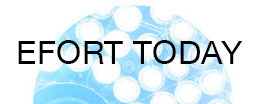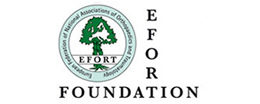The 12th EFORT Congress in Copenhagen this year, that will also mark the organisation’s 20th anniversary, is a unique opportunity for a profound update in any speciality or subspecialty involving Orthopaedics and Traumatology. Fed by the knowledge and experience of more than 30 European countries, this year’s “concert of expertise“will additionally benefit from an accent on the specific contributions of the Nordic countries. They cover burning issues such as rapid rehabilitation and quality control in joint replacements, as well as initial steps towards an even broader, inter-professional approach for working with patients.
“It would be easy to praise the obvious beauties of Copenhagen and sell them as motivation to attend the congress. But however impressive in fact, they are merely the wrapping that encloses a body of content that will be much more important and also -we hope – attractive to any European Orthopaedist or Traumatologist,” promises Ass Prof. Per Kjærsgaard-Andersen. He is both head of the Section for Hip and Knee Replacement at the Vejle Hospital of the South Danish University and Chairman of the Local Organising Committee of the 12th EFORT Congress taking place from 1 to 4 June in the Danish capital.
“Our two keywords are science and education”.
We present the most up-to-date knowledge in the whole range of specialities and subspecialties of Orthopaedics and Traumatology. We do this on the strict basis of evidence, and furthermore in a large variety of educational formats which provide directly applicable skills for any specialist attending.” In short: “From this event, you will come home with a better knowledge on how to treat your patients.”
That is no hollow prediction, since disseminating updated knowledge has historically counted among the greatest achievements of EFORT. At the Copenhagen meeting, the European Federation of National Associations of Orthopaedics and Traumatology will celebrate its 20th anniversary. Its emergence as one of the world’s most important Orthopaedic Federations is not unrelated to the 2006 decision to hold one congress annually, instead of biennially as previously was the custom. “Meeting only once every two years could not meet the needs for continuous and consistent education and training, especially given all the advances in one of the fastest growing specialities in medicine today,” Prof. Kjærsgaard-Andersen explains. “As a young doctor, I had to fly to the annual AAOS-meetings in the US to get my update. Now we have a more diverse and – in my opinion – a more interesting event on our own continent, already attracting many colleagues from overseas.”
This attraction comes from two factors: One is the cultural variety of Europe’s many nations that encompass a plurality of healthcare systems and orthopaedic developments adjusted to their needs. The other is the user-oriented way in which EFORT has designed its educational formats and in which it continues to design new ones. At the Copenhagen Congress, attendants can look forward to the following:
- The CRC (Comprehensive Review Course) will outline, in one day, all the important topics on orthopaedics and will review the entire curriculum demanded for the EBOT-exam. This has been “a huge success in past years and an important first step toward a common standard of knowledge that is to be expected from every orthopaedist across Europe.”
- The 22 IC (Instructional Courses) provide very practical updates in new diagnostic and operating techniques fora large spectrum of procedures. Generalists are taught by top specialists here. One otherwise often neglected topic is “the battered child.” Prof. Kjærsgaard-Andersen: “Frequently, orthopaedic surgeons are on the front line when such children are presented at the emergency rooms. In this IC we teach what to look for in order to recognize abuse and maltreatment and suggest necessary steps for ending such abuse.”
- In 4 ExMEx (Experts Meet Experts) seminars, pioneering experts in their field update other specialists in the latest improvements and newest technologies.
- In 30 symposia, discussions on the different approaches across Europe to various areas of speciality, including a search for common ground or even a consensus standard.
- 5 Difficult Case Presentations by invited colleagues, followed by discussions with the audience under the guidance of a moderating expert – a very vivid, sought-after format.
Three other formats, presented in Copenhagen for the first time, will be:
- The Speaker Coaching Workshop, designed for those who want to make the most of every speaking opportunity;
- The EU Political Symposium on “Musculoskeletal conditions and active aging in the EU”, one of the most crucial topics for the financial survival of most European healthcare systems;
- The “nurse’s day,” which, as Prof. Kjærsgaard-Andersen explains, “opens the road to a not only interdisciplinary, but inter-professional approach to the work on patients. We offer not only a full day’s programme on science-based nursing, but also invite nurses to come one day earlier to visit Copenhagen hospitals in an organized way.”
Which leads to the specific contribution of the Nordic Countries to the European “concert of experience” in Copenhagen that will involve two of the three plenary sessions.
“The oldest nationwide registry is that of joint replacements in Sweden, followed by those in Norway and Denmark, which have been combined meanwhile to get data from larger samples. In the plenary session on the use of registries we will show how such documentation can help to improve the efficiency and sustainability of a certain treatment,” Prof. Kjærsgaard-Andersen notes. “Our second hot topic is fast-track treatment and rehabilitation in orthopaedic surgery, a field where Denmark is leading the world. This is not about pushing patients out of bed, but of getting them on their feet again as quickly as possible through short but intensive rehabilitation. We have proven this not only to provide a considerably better quality of life, especially for elder patients following surgery, but also to rid us of our former problem of year-long waiting lists for joint replacements. To date, we have no waiting lists whatsoever for joint replacements in the whole of Denmark. This could save lots of resources in the healthcare system.”
One last attraction, not to be neglected: The tight cooperation with industry, without which most of the recent advances in Orthopaedics and Traumatology would not have been possible. Prof. Kjærsgaard-Andersen: “The congress will pause for 1 ½ hours at lunch time, giving the industry a chance to show what is new and – just as essential – whether it is evidence-based or not.”
Per Kjaersgaard-Andersen
Chair Local Organising Committee 12th EFORT Congress Copenhagen 1-4 June 2011


